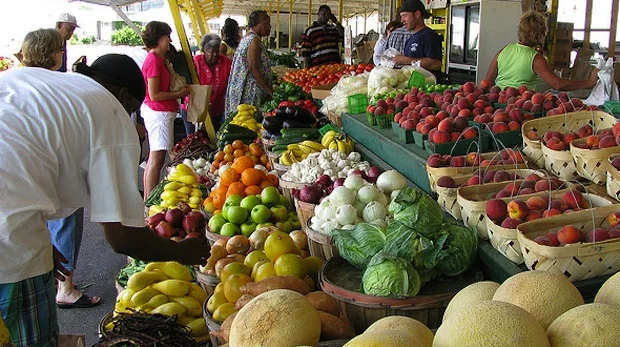
Walmart recently announced a plan to bring hundreds of stores to fresh-food-starved “food deserts” across the U.S., but the just-announced California FreshWorks Fund has a more localized–though still ambitious–goal: to bring healthy food to underserved communities and to galvanize local economies in the process. We had the chance to talk to NCB Capital Impact, the national community development financial institution that’s administering the fund, about who gets the cash and why.
The FreshWorks Fund, a collaboration between the California Endowment and over a dozen partners, has $200 million to give to aspiring food vendors (everything from big grocery stores to small produce trucks) in California food deserts. “The reason the market doesn’t work [in food deserts] is because the risk of loss in those communities is higher on a relative basis than what you would find somewhere else,” says Annie Donovan, COO of NCB Capital Impact. “We pull together incentives and use grant dollars and socially motivated capital in strategic ways to get those traditional lenders to put their money there.”
So far, NCB Capital Impact has rounded up a number of investors, including heavy hitters like JP Morgan Chase (the fund’s biggest investor), Morgan Stanley, and Bank of America. And the FreshWorks Fund is already hard at work in 14 California communities.
Sometimes it really is just a matter of putting together a financing package for interested vendors. “One of our first deals is with a Unified Grocers member in South L.A. There was a site, a location, and they were interested, but they said it doesn’t pencil out, we can’t do it,” says Donovan. “We went back with a financing product we could offer and they said, okay, we can do that.”
The FreshWorks Fund isn’t just offering cash to big grocery stores. In rural areas, for example, the economics just don’t work–even with NCB’s financing help. So FreshWorks is also funding other models, including farmer’s markets, co-ops, and even produce trucks.
NCB also has $25 million earmarked as an “innovation fund” for unproven ideas. One example: A group in East Oakland has a concept to place a small shop across the street from the potential site of a new, large grocery store. The smaller store would focus on local food and education to supplement the more generic services provided by the neighboring grocery chain. “It will also have a job component so that people who work in their store can maybe eventually work in the big store [across the street],” explains Donovan.
Of course, having healthy food readily available won’t solve the country’s growing obesity problem, which is largely centered around low-income food deserts. According to a recent UNC Chapel Hill study, food costs and cooking skills are also important factors in convincing people to opt for salad fixings instead of fast food burgers. But there will never be an opportunity for change without access to fresh food. We have to start somewhere.
Recognize your brand’s excellence by applying to this year’s Brands That Matter Awards before the early-rate deadline, May 3.